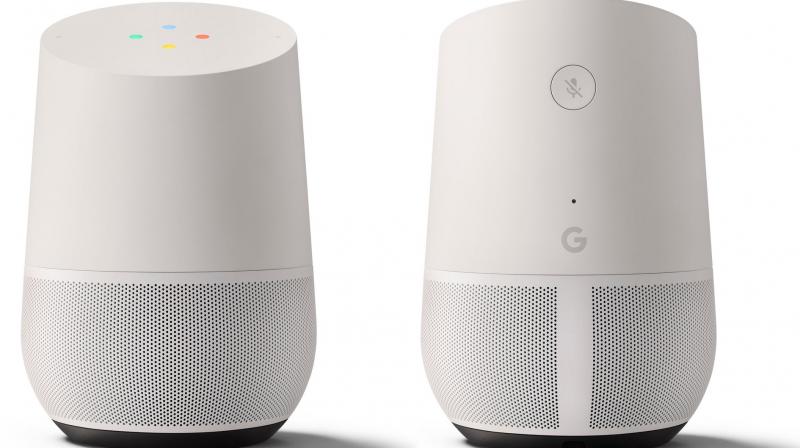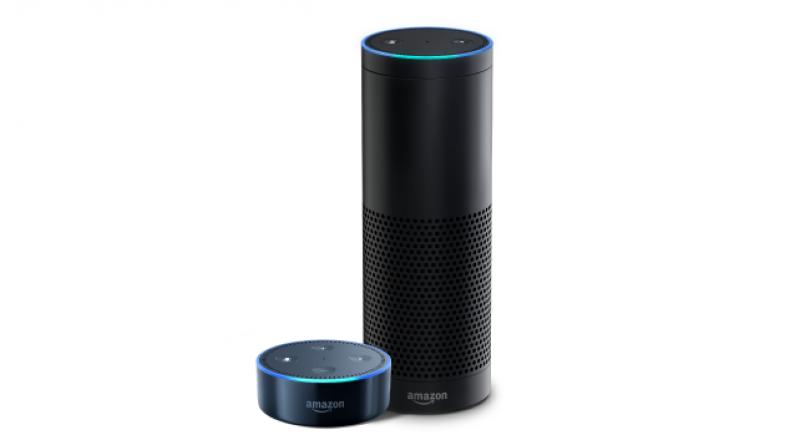Is India ready to embrace voice assistants?

Voice assistants are all the rage, the comparison between Google Assistant and Amazon Alexa won’t end until cows come home. The real issue is how ready are people to adopt Voice, a whole new way of how we interact with machines.
With almost all smartphones in the industry today sporting voice assistants (be it Apple, Google, Samsung or Xiaomi), we are slowly moving from a touch-based interface to complex voice commands. Amazon was one of the first to adopt the Alexa voice assistant into a home appliance with their Echo speakers. The devices operate without the need of a smartphone and can now be catering homes with simple to complex tasks from answering simple questions to controlling almost all electronics in a house with just a voice command. However, while English is the main language for giving commands at this time, other languages are not yet available.
India has a large population, and with people speaking multiple languages, dialect, accent and vocabulary, the voice assistant could end up confused or ineffective in most cases. While language is not only a big criteria, security and privacy of the user is also a huge concern.
How are voice assistants going to cater a huge population consisting of different languages and varying dialect, apart from keeping their privacy and security safe? Is India ready for voice assistants yet?
We poked Sreeraman Thiagarajan, who is the co-founder of Agrahyah Technologies in India to get some insights. Agrahyah Technologies is building a suite of software and content from ground up in Indian vernacular languages, which is aimed at empowering the non-English internet users.
Thiagarajan said that one of the biggest hurdles for any software or adoption of technology is not limitation of features of functionalities, but the resistance shown by people to use it. ‘It’s common to see people struggle when they are trying to adopt a new technology, whether it’s a new car or smartphone or voice assistants, any new method of telling a machine to do something has a learning curve, ’ he said.
UX designers’ user a term called Skeuomorphism, where an object in software mimics its real-world counterpart. The ‘email icon’ is an envelope, the ‘trash can icon’ is a dustbin; these are among the most recognizable skeuomorphic objects. This design philosophy is practiced by developers to friction when people adopt a new technology. With Voice, the challenges are not just in designing software but in getting the entire product market fit right; and cracking a strategy for a diverse country such as India is like nailing jelly on a wall.
Here are some pointers by Thiagarajan to critically examine if we are ready to enter the voice first world.
Value vs. Price: Amazon Echo and Google Home starts at Rs 4,400, similar cost of an entry level Android phone with a worthy camera and memory. But its unequal in its value and utility right now, though smart assistants are chatty, comes with bundling of music and entertainment packages from OTT brands, its ability to get things done in real world is limited right now for the masses who don’t have smart hub, smart TVs, smart bulbs or thermostats. These limitations can’t be solved by Google and Amazon alone, it warrants a collective contribution by brands and businesses that must recognize the significance of ecosystem play and embrace voice by building for it, ground up.
 Google Home, powered by Assistant.
Google Home, powered by Assistant.
Languages and context: From Stephen Hawking to PA systems in train stations, voice recognition & synthesis has been around for decades, what’s so new about it now that everyone is so excited? It is due to the advancement of computing power such as natural language processing which powers the voice assistants, this helps people ‘talk’ to it, convey ‘intent’ and get back human like responses that are meaningful and contextual. With over 22 official languages, India will never be one size fits all market, but English, Hindi and Hinglish marks a good start to woo the early adopters and the affluent lot, but we need an exponentially high amount of content and support in vernaculars for mass adoptions of voice as a preferred UI. In other words, Star Plus alone won’t do, we need Sun TV as well!
 Amazon Echo Plus and Echo dot, powered by Alexa.
Amazon Echo Plus and Echo dot, powered by Alexa.
Magic box or Pandora’s box? From a 4-year-old to 70-year-old, voice assistants are everyone’s pet. These chatty little boxes are full of charm; they have something for everyone including nursery rhymes, recipes, devotional chants, health facts, cricket scores, stock indices and so on. But thanks to Zuckerbergs of the world screwing up, we fringe on paranoia about privacy. It’s justified from a layman’s perspective to be alarmed, but voice assistants are no different than any other consumer facing technology.
 Apple HomePod, powered by Siri.
Apple HomePod, powered by Siri.
Billions of Yahoo user’s account details were once compromised, WannaCry ransomware held lakhs of PCs to pay ransom in bitcoins, but look around, you’ll still see people scrolling on Facebook, checking email and using PC while dismissing notifications that urge to update the OS with security patches. In a physical world, we continue to read news about debit cards being skimmed while using ATMs. We are vulnerable in the hands of any piece of technology, that doesn’t mean we should abstain from it. The onus of keeping user privacy intact is the primary responsibility of the service provider, and as consumers, we must err on the cautious side.
From burger joints to AI-powered voice assistants; India is the hottest market in the world right now. It’s not much of success if you get a million users here, when the true potential is a billion plus.
So even if India may not be completely ready for voice assistants and voice-based home automation in their homes at this point, we are soon witnessing a speedy change in the lifestyle of its common man. With technology getting cheaper, we could soon see ourselves walking into our homes and giving commands to everything around us.
The days aren’t too far when you could would be simply stepping up to your door and saying ‘OK Google, I’m home.’ The AI kicks into action and you could immediately be pampered with mood lights, hot bath, relaxing music and a great meal tailored and catered to your choice without even lifting a finger.

